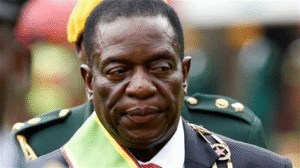CELEBRATING A DEGREE OR CHASING POWER? THE GROWING TREND OF PhDs IN ZIMBABWE

President Emmerson Mnangagwa was recently in Chiweshe, Mashonaland Central, to celebrate his wife, First Lady Dr. Auxillia Mnangagwa’s new academic achievement. She was awarded a Doctor of Philosophy (PhD) in Tourism and Hospitality Management by Midlands State University. During her graduation ceremony in Gweru, her husband personally capped her with the doctoral tam.
This celebration brings attention to a growing trend in Zimbabwe. More and more officials are pursuing PhDs, but their motives are often questioned. Some believe these degrees are more about boosting political power and influence than about education. The story of former First Lady Grace Mugabe is a good example. She earned a PhD from the University of Zimbabwe in 2014, but many people called it fake. Her academic achievement came under serious scrutiny and added to her controversial reputation. She later lost power when her husband, former president Robert Mugabe, was ousted in a coup in 2017.
Vice President Constantino Chiwenga is another example. He holds a PhD from the University of KwaZulu-Natal, but this degree is surrounded by questions and debate. Some people wonder if his academic journey was genuine or if it was simply for political gain.
In Zimbabwe, some officials believe that having a PhD gives them more respect and influence. They see it as a way to prove their competence and leadership abilities. This is called “academic credentialism.” It means using advanced degrees not for personal growth or public service, but to gain social status and political power.
This mindset can lead to problems. Some officials may chase degrees without really valuing education. They might focus on getting the title “Dr.” instead of truly gaining knowledge or improving their skills. This damages the true purpose of education, which should be about learning and growth.
Education is important for leaders. When officials pursue higher learning for the right reasons, it benefits the country. They can use their knowledge to serve the people better and make informed decisions. But when education becomes a tool for personal ambition, it loses its value. It turns into a way to show off or gain power, rather than a way to improve society.
The problem of fake or questionable degrees damages trust in leaders. When officials are seen as dishonest in their academic pursuits, people may question their ability to lead. It also hurts the reputation of the universities that grant these degrees. True education should be about honesty, effort, and a genuine desire to learn.
In Zimbabwe, this trend raises important questions. Why are so many officials chasing PhDs? Are they truly committed to learning, or are they just trying to boost their political careers? These questions matter because they affect how people view leadership and education in the country.
Pursuing higher education is a noble goal. It should be celebrated when done for the right reasons. Leaders who genuinely value education can inspire others to learn and grow. They can also make better choices for the country. But when education is misused for power or status, it creates a bad example. It shows that titles matter more than knowledge, which is not the message a leader should send.
As Zimbabwe celebrates the First Lady’s achievement, it is important to reflect on these issues. Education should be a path to growth and service, not just a shortcut to power. Leaders should strive to be examples of integrity and commitment to learning. Only then can education truly serve its purpose in building a better society.




